









































2024/2025 SEASON STUDY













































2024/2025 SEASON STUDY


Attending live theatre is a unique experience with many valuable educational and social benefits. To ensure that all audience members are able to enjoy the performance, please take a few minutes to discuss the following audience etiquette topics with your students before you come to Hartford Stage.
• How is attending the theatre similar to and different from going to the movies? What behaviors are and are not appropriate when seeing a play? Why?
• Remind students that because the performance is live, the audience affects the performance. No two audiences are exactly the same and no two performances are exactly the same—this is part of what makes theatre so special!
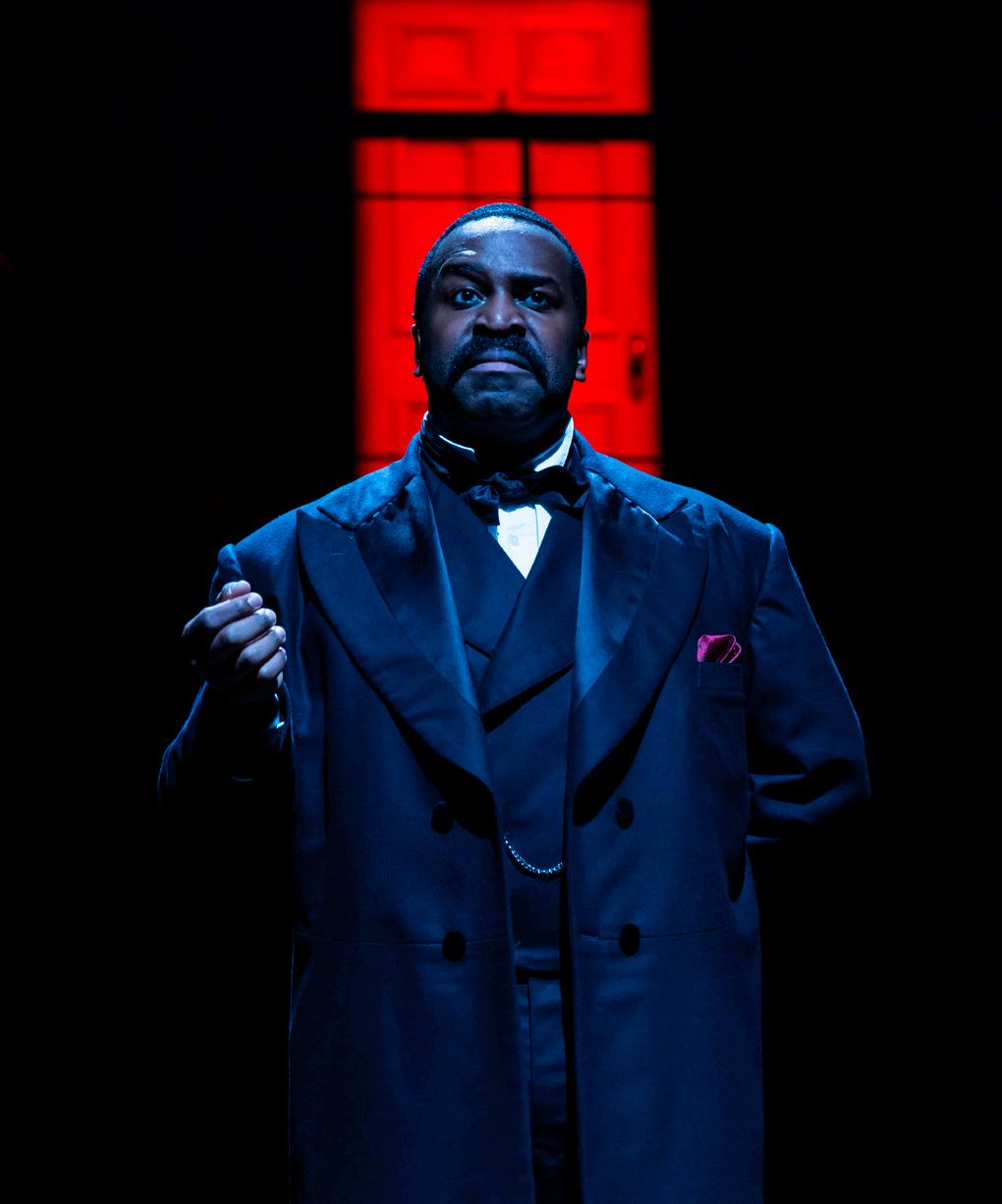
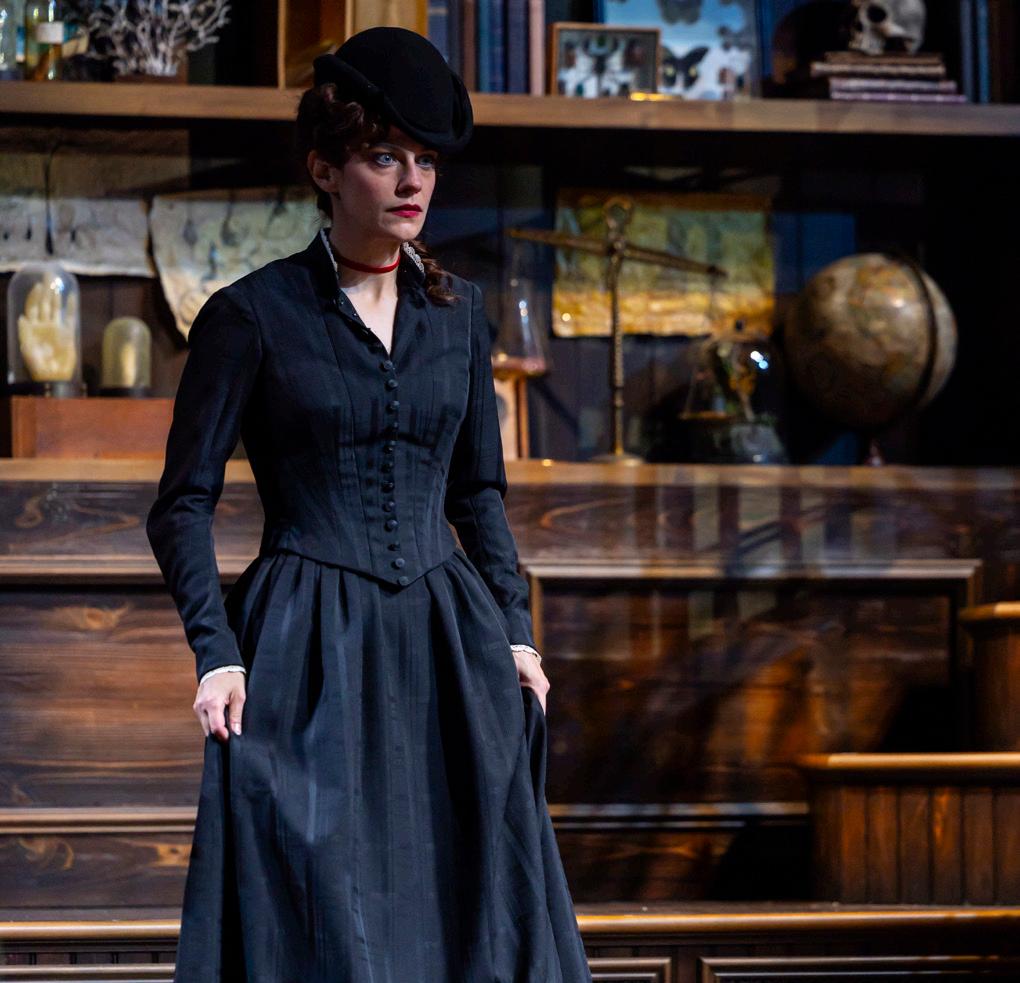
• Theatre should be an enjoyable experience for the audience. Audience members are welcome to applaud when appropriate and laugh at the funny moments. Talking is distracting to other audience members and the actors on stage. Theatres are constructed to carry sound efficiently!
• Any noise or light can be a distraction, so please remind students to make sure their cell phones are turned off. Students should not text, or take photos or video during the performance.
• Students should sit with their group as seated by the Front of House staff and should not leave their seats once the performance has begun. Students will have the chance to get a drink or snack, eat lunch, or use the restroom at intermission.
Who is the man behind the original story of Strange Case of Dr. Jekyll and Mr. Hyde? Was he a shady character looming in the shadows waiting to pounce upon unsuspecting victims? Perhaps he was a visionary who wished to solve the problems of humanity through his work?
Far from violent and as close as you can get to brilliance, Robert Louis Stevenson was a Scottish novelist, poet and travel writer who lived in the 19th century. Though he only lived to be 44 years old (1850–1894), he wrote over 30 novels and short stories, a handful of poems and an array of other works, both fiction and non-fiction. Classified as a neo-romantic writer, Stevenson wrote in a flavor of realistic expression that favored a hopeful examination of the inner workings of the mind.
As a young man, Stevenson battled countless bouts with sickness, inheriting a weak lung from his mother. Through all of his physical ailments, however, he still clung to a strong sense of adventure, inherited from his father. Coupled with a passion for moral philosophy and spirituality, Stevenson was never short on inspiration or depth in his work.
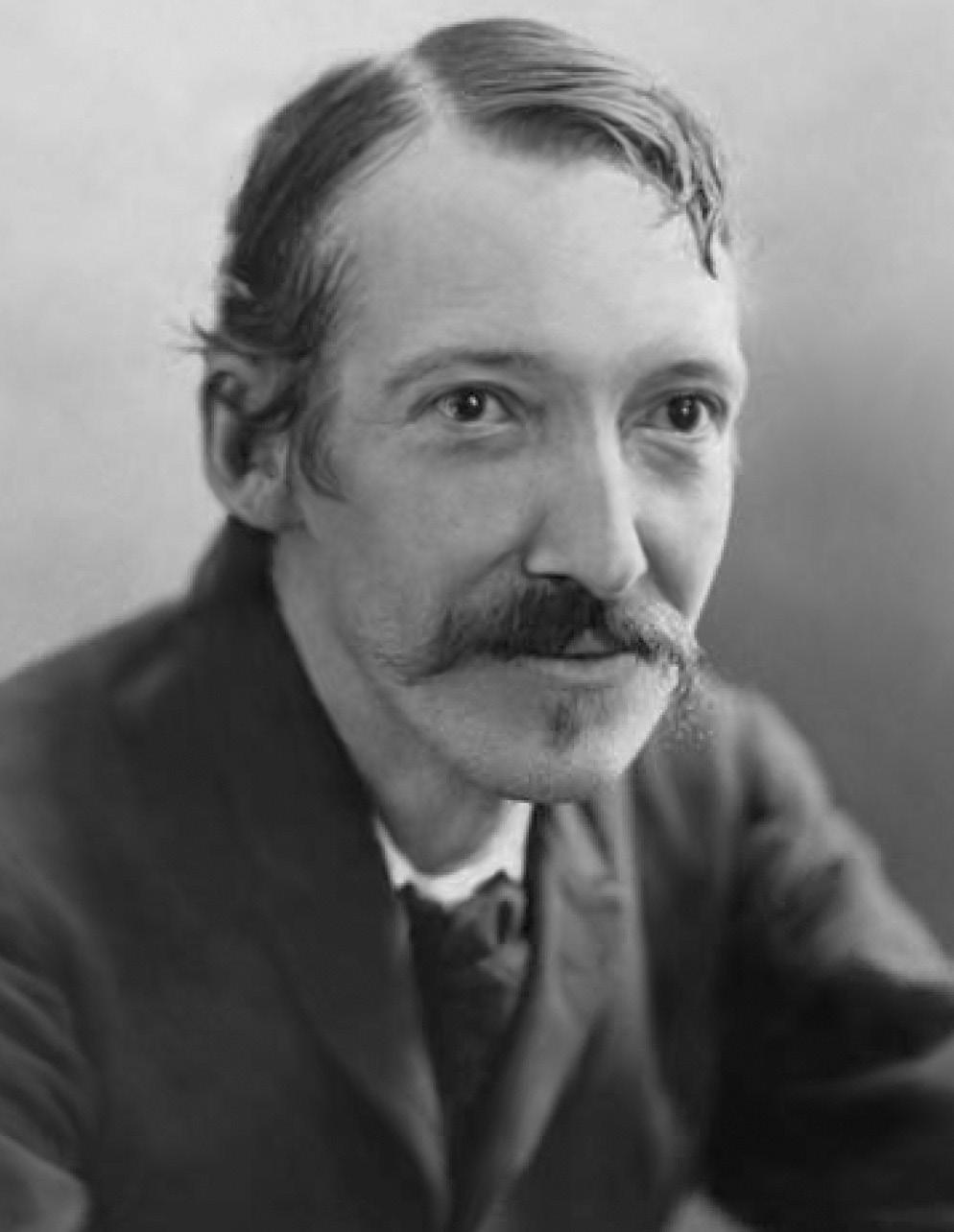
It was not until Stevenson attended college, however, that he would realize his gifts were artistic. Originally attending the University of Edinburgh to become an engineer, Stevenson disappointed his parents when he told them he was more inclined to storytelling than science. They eventually approved of Stevenson’s choice, as long as he finished his degree (which he shifted to law, a respectable profession).
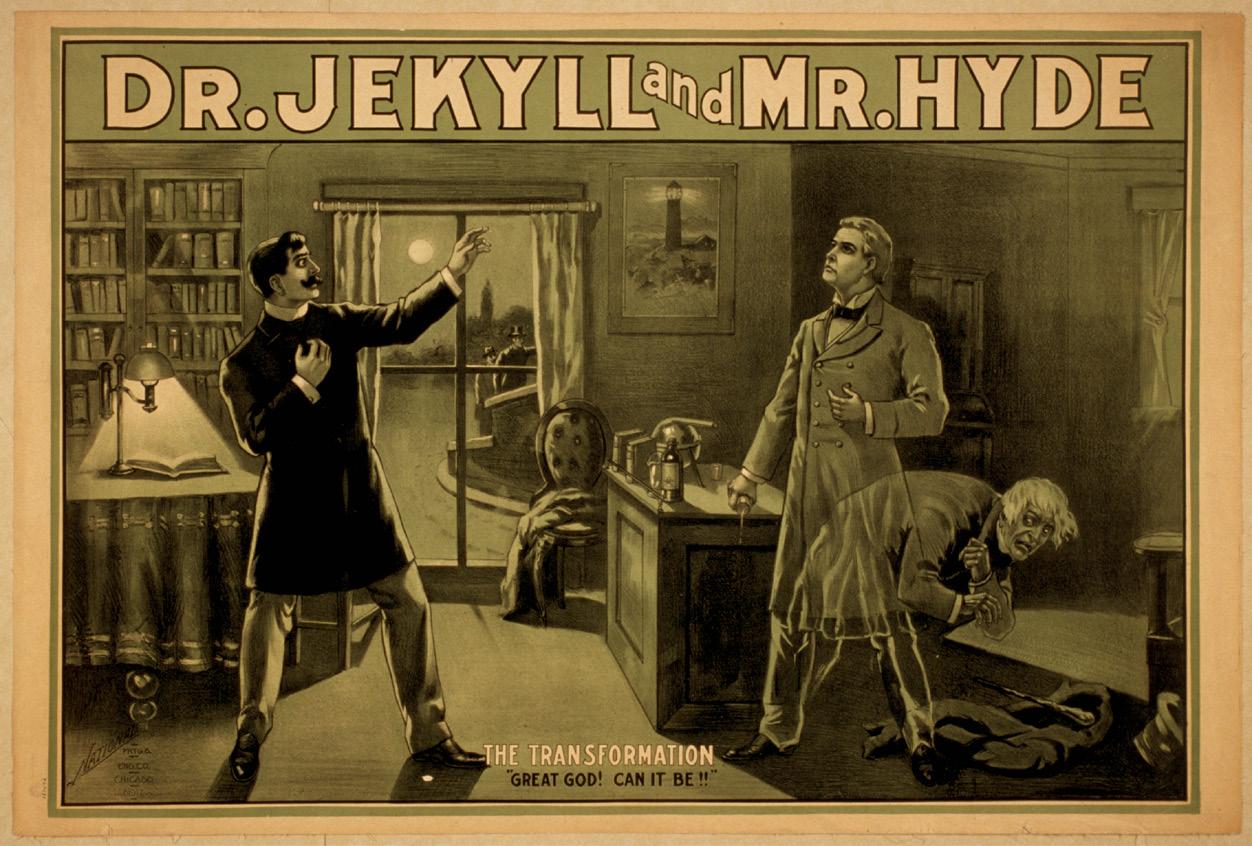
for a theatrical
In spite of his ailing health, Stevenson’s sense of adventure led him around the world and back more than once throughout his life. In his many travels across Europe and America, he picked up a vast array of source material that fueled an interesting and diverse body of work. Stevenson’s first real success in writing came at age 33 with Treasure Island, an adventure story of pirates and buried treasure. The story has been made into countless films, and the most famous character from the story (Long John Silver), became the name of a famous fast food chain. His work was very well received during his lifetime, and various other successes followed. His untimely death, however, cut Stevenson down in what may have been his prime—in the middle of writing Weir of Hermiston, a promising novel that showed greater potential and artistic growth for the writer.
Though today we consider Stevenson a writer of great range and insight, during his day (and in fact until very recently) Stevenson was shunned by scholars because of the popularity of his work. Many great minds did not pass him by, however, as a host of well-regarded writers credit Stevenson for inspiration, of which Jorge Luis Borges, Ernest Hemingway and Rudyard Kipling are just a few. Today, Stevenson is ranked the 25th most translated writer in the world, ahead of contemporaries Charles Dickens, Oscar Wilde and Edgar Allen Poe.
Reprinted with permission from The Repertory Theatre of St. Louis.
The following are excerpts from a conversation between playwright Jeffrey Hatcher and Director/Artistic Director Melia Bensussen about Hatcher’s adaptation of Dr. Jekyll & Mr. Hyde, based on the novella Strange Case of Dr. Jekyll and Mr. Hyde by Robert Louis Stevenson.
Melia Bensussen: Well, Jeffrey, it’s a pleasure to see you. I’m so grateful for this adaptation of Jekyll and Hyde.
Jeffrey Hatcher: You’re welcome. All for you, Melia.
MB: Yes. Well, we go way back, sir. Jeff, you originally wrote this adaptation 15 years ago, give or take. What inspired you to do this adaptation?
JH: Well, David Ira Goldstein, friend and former artistic director at Arizona Theatre asked me if I’d ever thought about adapting it. And once or twice over the last 40 years or so, I’ve thought, “Oh, what could I do with the Jekyll and Hyde story?”
A lot of adaptations of really wellknown titles sometimes tend to be reactive – reactive not only to the original, but to all the other adaptations. You get used to the tropes and what all the other adapters have done. There are a couple of things that I didn’t want to do that many other adapters have done and done well. But I got very excited, thinking that I could pull off a few tricks that nobody else had.
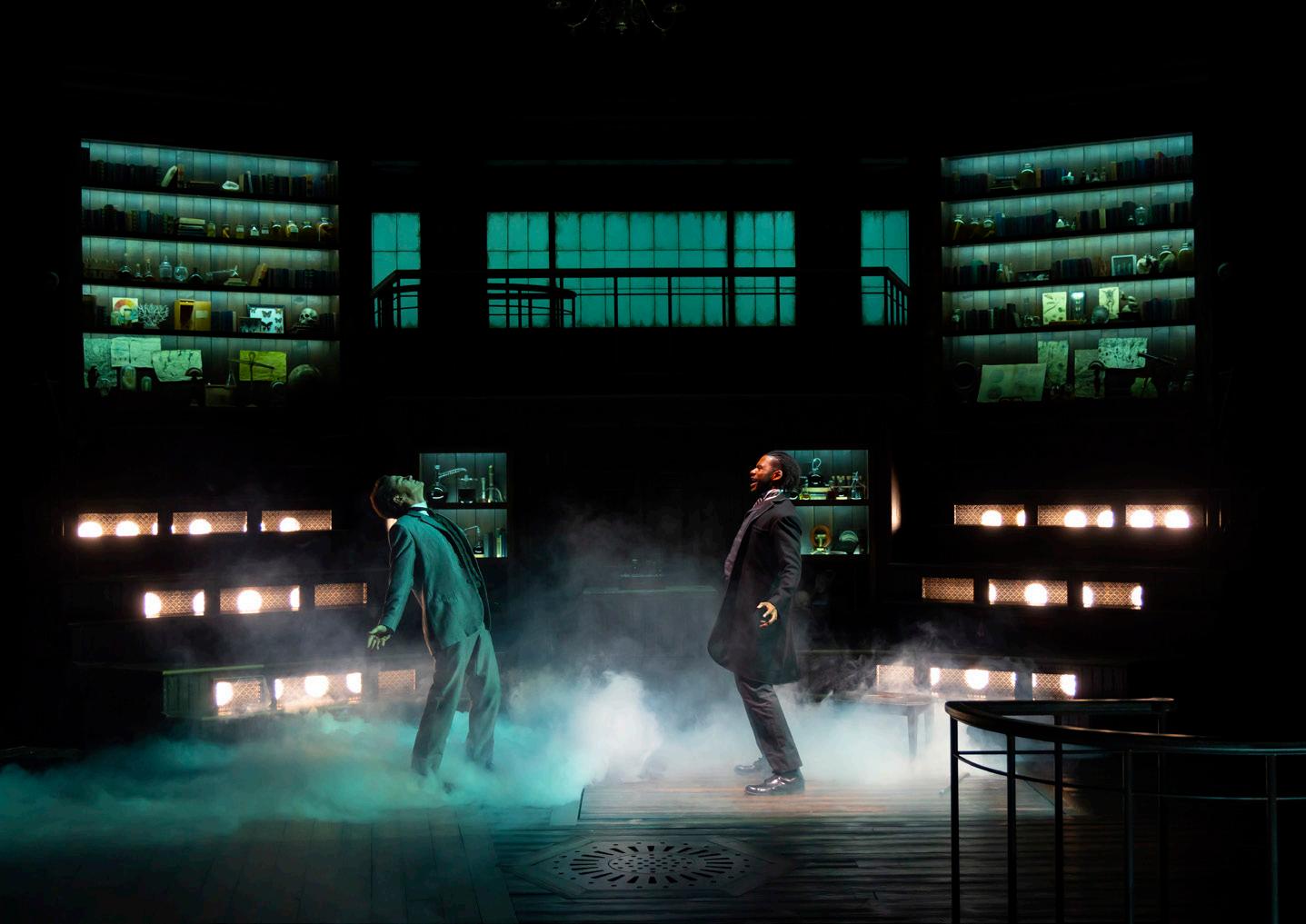
MB: In your adaptation, what do you feel you are focused on thematically? Without giving spoilers!
JH: I don’t want to give away the fun because part of writing the piece was thinking it’ll be fun for the audience, fun for the actors and director!
There is a notion that when Dr. Jekyll takes the tincture, that he always becomes the same Mr. Hyde – and I thought, when you take something that alters your consciousness, you are often different every time you take it, based on how much you take, or what you interact with, based on your mood. There are different levels of inebriation…And I thought, well, let’s look at Mr. Hyde in terms of variation and possibilities.
And the other was this notion that somehow if Mr. Hyde was so bad, Jekyll had to be so good.
Even in the novella, Stevenson makes a reference to Jekyll as having had some darker or more complicated thoughts or instincts or inclinations when he was younger. So, I thought, rather than take the old fashioned view
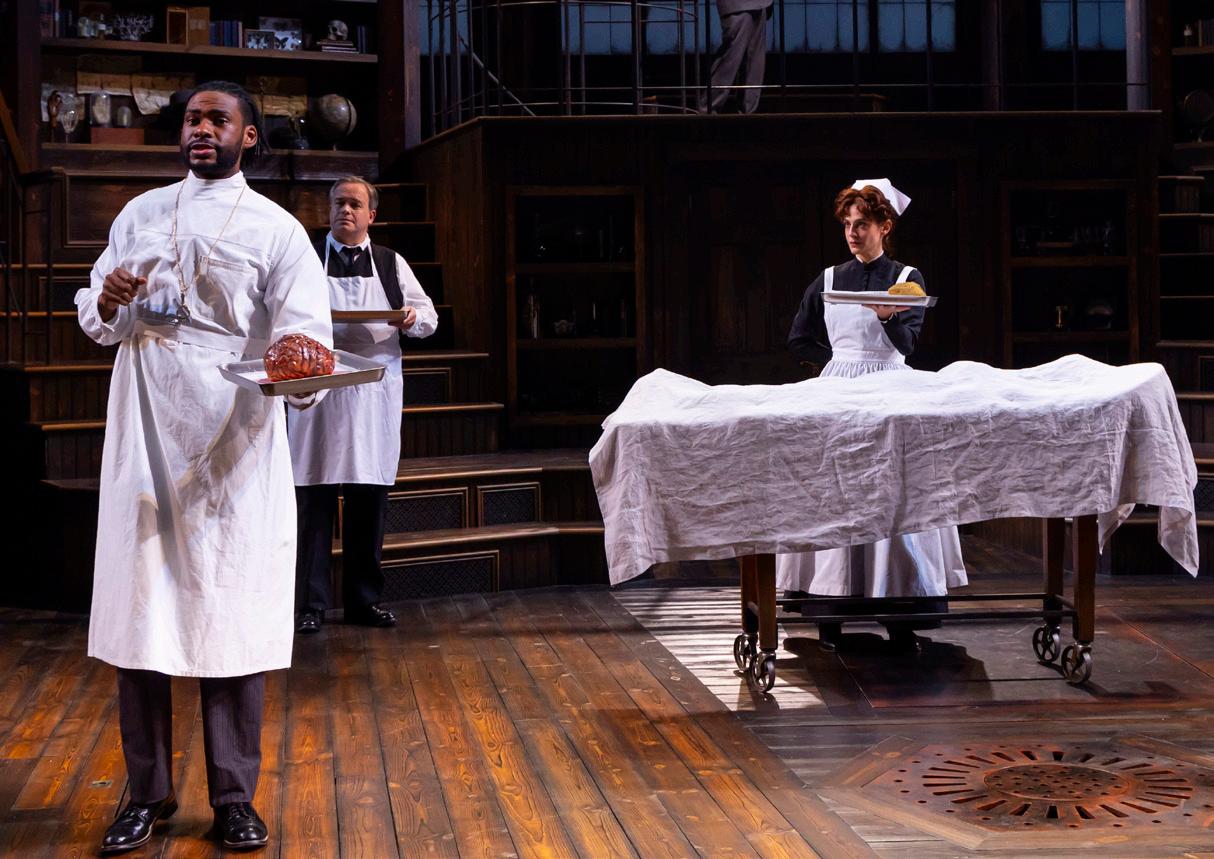
that Jekyll was great and Hyde was evil, now we take the view that Jekyll is a normal human being with mixes of good and bad, which means that, if we’re going for that negative — you know, like a photograph — if we’re going for that negative flash in Hyde, then Hyde is not going to be completely evil. There are going to be pieces of him that are, let’s call it, positive and that these things could shuffle during the course of the play.
MB: In reading Stevenson I realized how much Dr. Jekyll is struggling because he hates having to deal with his dark impulses. He’s trying to separate into this binary of good and evil. So that “good Dr. Jekyll” doesn’t have to think about anything dark in his psyche. And I feel like Stevenson’s writing with a real sense of irony about how impossible that is to do.
JH: Oh yeah. In all these mad doctor stories — Jekyll and Hyde, Frankenstein, The Island of Dr. Moreau — perfection is going to go awry. It’s an interesting view of science as seen by an artist. Because we believe in science these days –follow the science! —but we also know, re: Robert Oppenheimer, that the science doesn’t always work out the way you’d like it to. You’ll get your results, but you’ll get more than that.
MB: There’s something in both your piece — in some of the language that you’ve crafted so wonderfully — but also in the Stevenson, that says Jekyll’s life was 90% effort. It’s really exhausting for Jekyll to be Jekyll! And there’s a freedom in not having to be Jekyll…
JH: He’s a classic Victorian repressed character. He is suppressing emotions, suppressing behavior, and it’s what’s demanded of a man of his sort, a man of his class and position. He is a doctor at role. He’s not known for his bedside manner. I think we make it clear that Dr. Jekyll is a research clinician. He has a position that gives him a lot of moral authority. And moral authority is easily destroyed by one smear, smudge, scratch. And so, he spent his life trying to make sure none of that veneer cracks.
MB: So, where do Jekyll and Hyde fall on the spectrum of what we perceive as good?
JH: Well, that’s where the woman comes into it. But rather famously, I think in the novella, women are barely present.
MB: No women speak in the novella.
JH: No, there’s a maid who witnesses a murder.
MB: And faints!
JH: As I would, perhaps. I think women have the right idea about fainting. Just make sure that fainting couch is behind you.
I think it’s very interesting that the first adaptation to the stage of Jekyll and Hyde
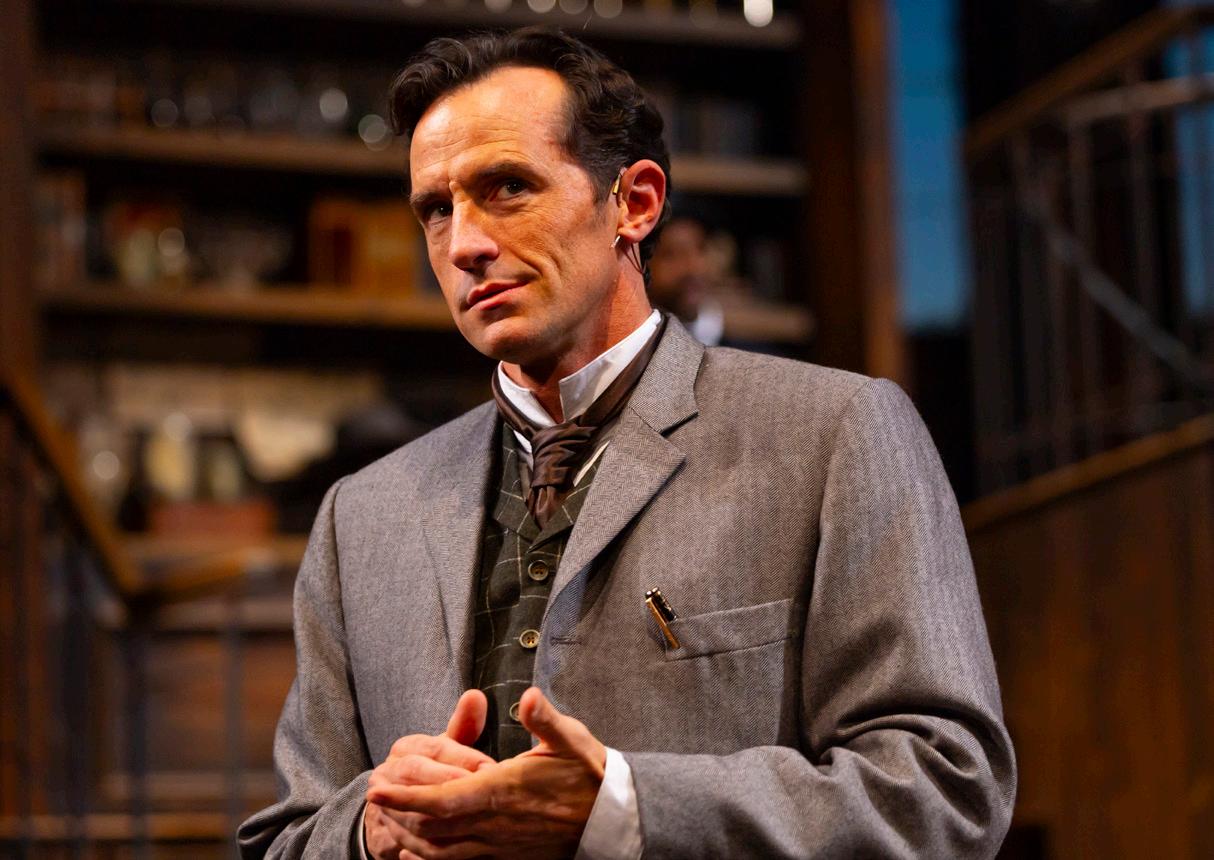
immediately introduced a female character, Jekyll’s fiancé. And for about the next hundred years, adapters have always stuck in a fiancé — a very nice virginal, upper-class woman for Jekyll to be dating. And then there’s usually a prostitute, or a bar girl, or a singer who encounters Mr. Hyde. So, other adapters have, I think wisely — for commercial reasons — said, “Well, there’s got to be some romance to this!”
We have a woman in our version – Elizabeth –but we don’t have that dichotomy.
MB: Right, the good and the bad are embedded in each other, which is part of what is wonderful about this adaptation. You’re getting rid of all the binaries. It starts with this desire for a separation of good and evil, and then that human nature doesn’t allow that kind of separation.
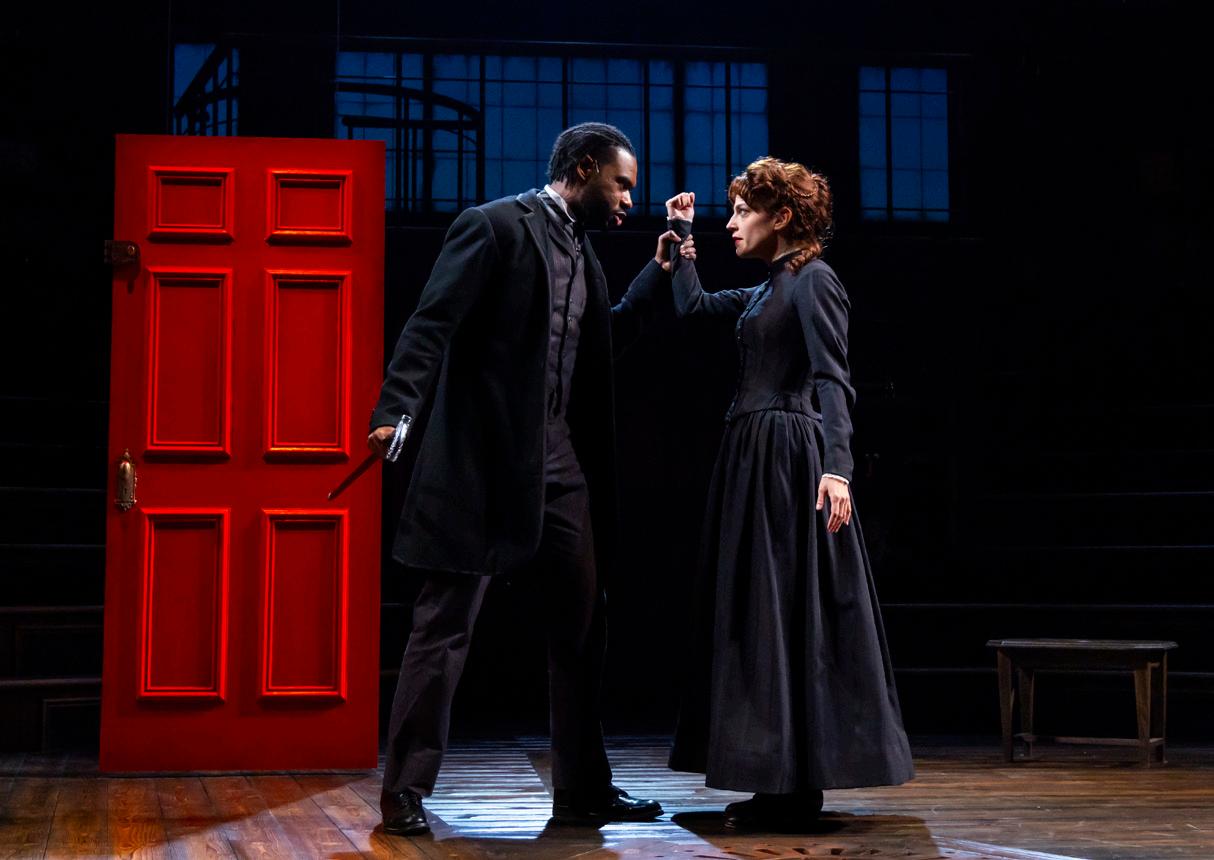
A community member asked me if there was comic relief in this dark story. And I was able to attest to your sense of humor! I told her the story of how when you and I first worked on Turn of the Screw over 25 years ago, after our first preview, you looked at me somewhat distressed and said, “They missed all these jokes.” And I said, “But Jeff, we’ve set it up. It’s creepy.” And you said to me, and I never forgot it, and I really learned from it, “If they’re not laughing with us, they’re not with us.” And I’m really enjoying what you’ve planted into Jekyll and Hyde along those lines.
JH: I don’t know, a drama that doesn’t have a good few comedic moments. I mean, a really good production of Waiting for Godot or Death of a Salesman or No Man’s Land has a lot of laughs. King Lear has a lot of laughs. Some of it is basic, old-fashioned “let the audience release tension, let the audience know they have permission to laugh.” But it is also a way of aligning audiences with character.
MB: Yes! In rehearsals, we are so enjoying the humor in your adaptation and creating moments that align us with characters that – at first glance – you might not expect to connect with. There’s great wit in the piece. It’s also such a joy to work with you in real time, finding new moments of humor – and horror! Even though it’s a published play, you’re making changes to fit these actors and this thrust stage. It’s really a gift for us. We feel like we’re doing a new play because you Zoom in, you answer our questions, you’ll be visiting during technical rehearsals and preview performances. You’re really helping us make this play fit this theater at this time and with this cast.
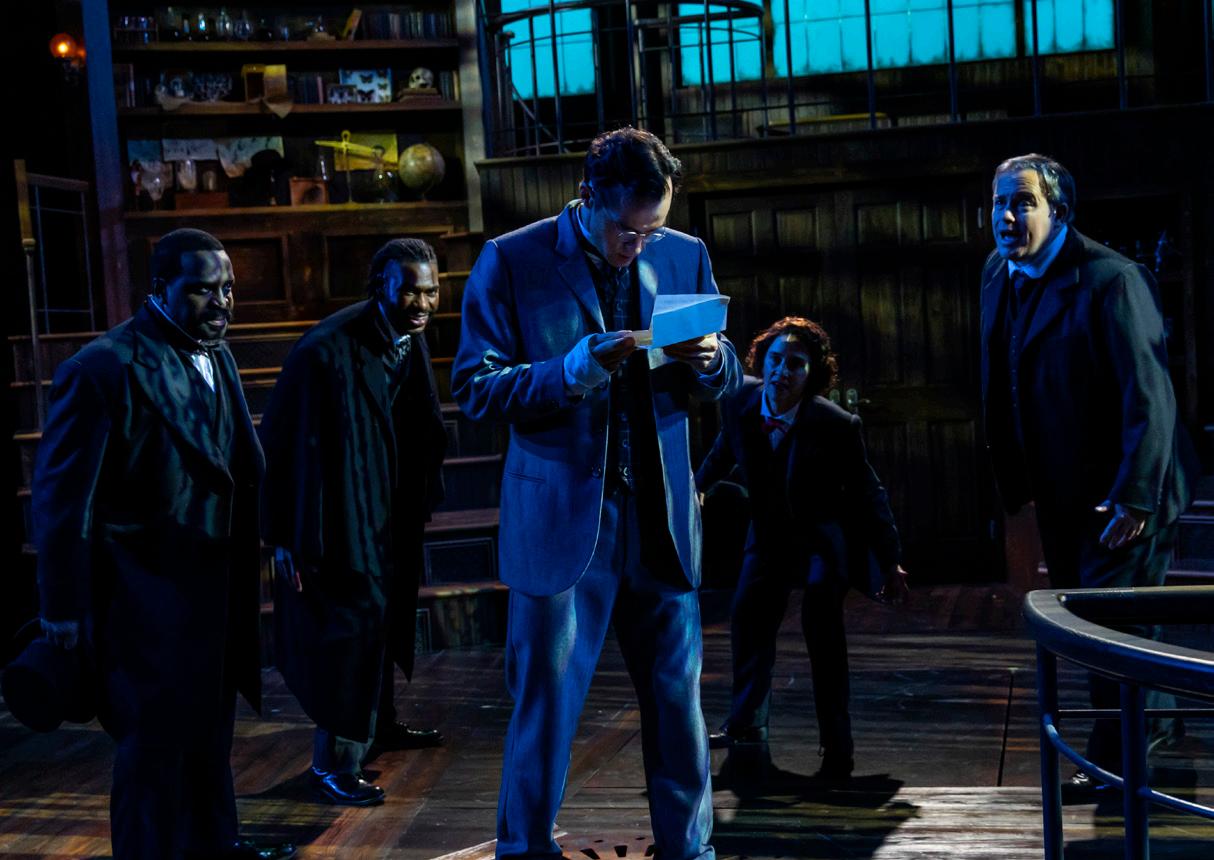
JH: Well, I’m always open to changes on a play that’s been out there for a while. But usually, you don’t revisit a play that’s been out there for a long time. So, I figured why not revisit it? There’s always something that you’ll do.
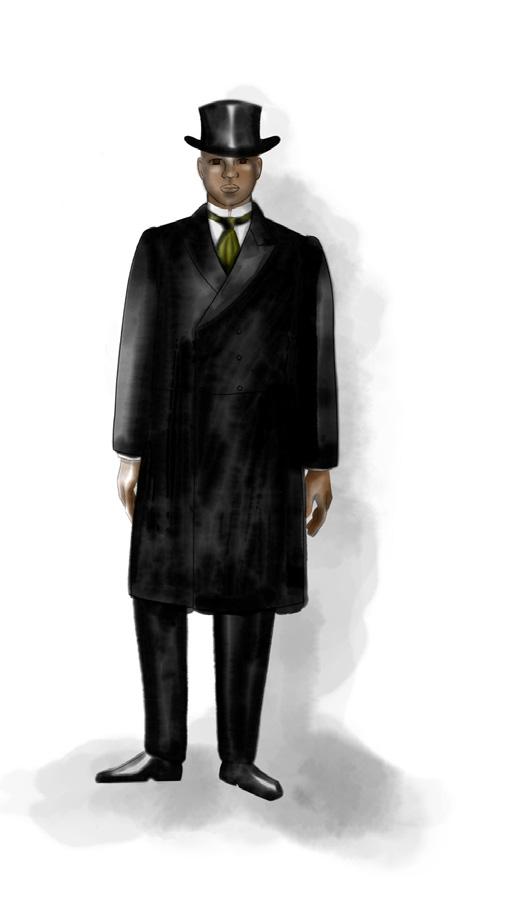
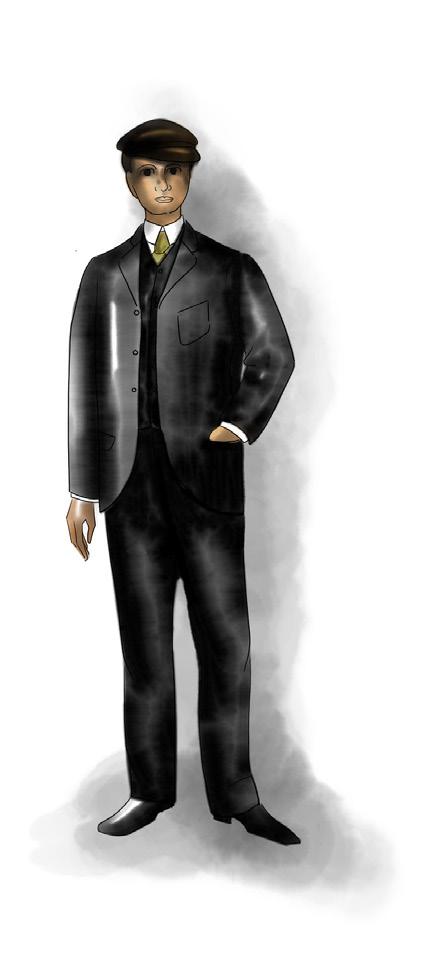
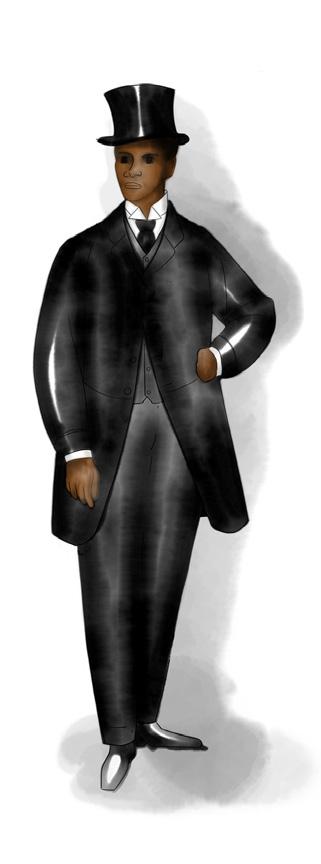
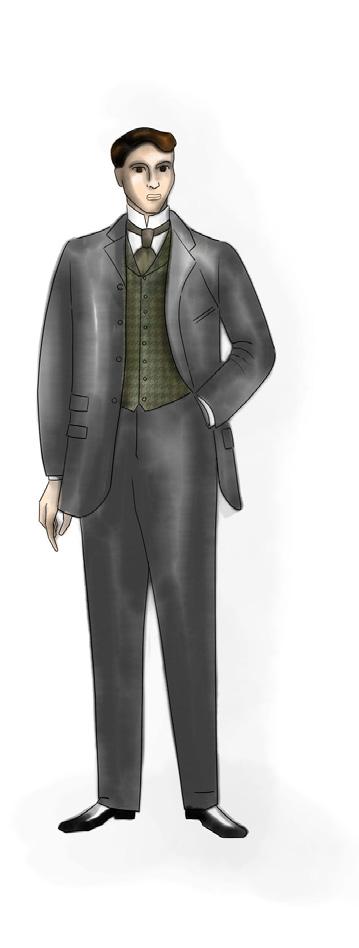
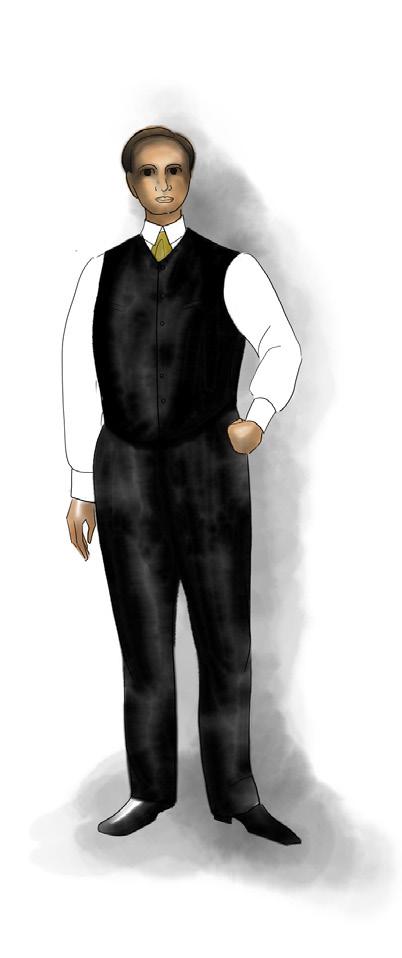
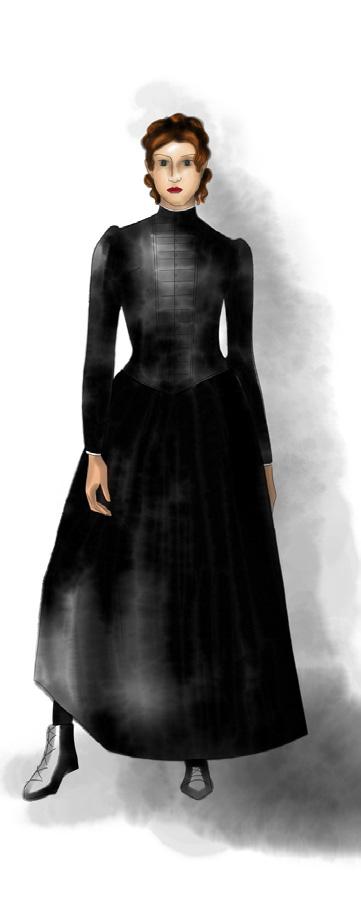
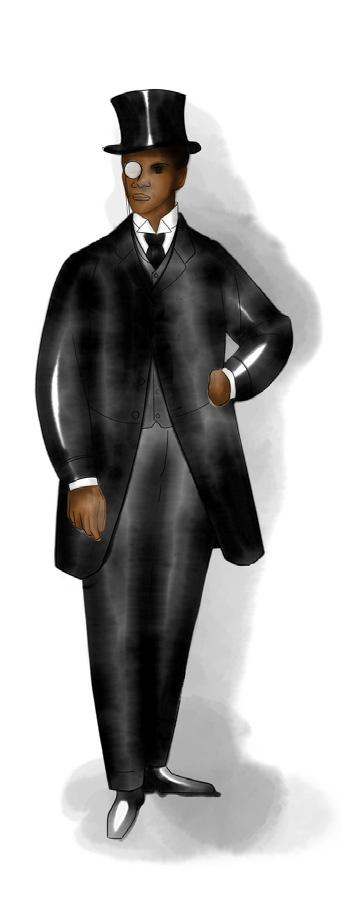
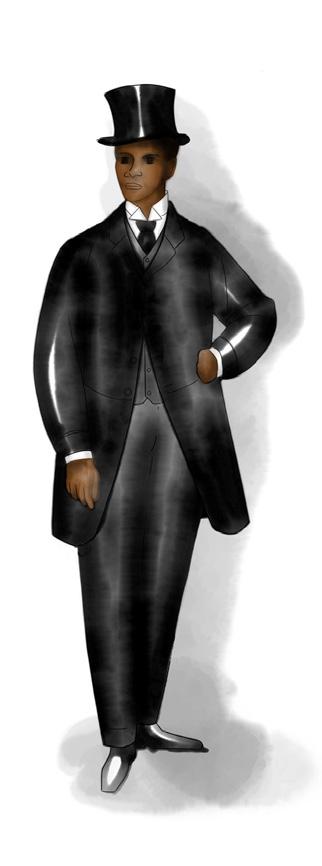
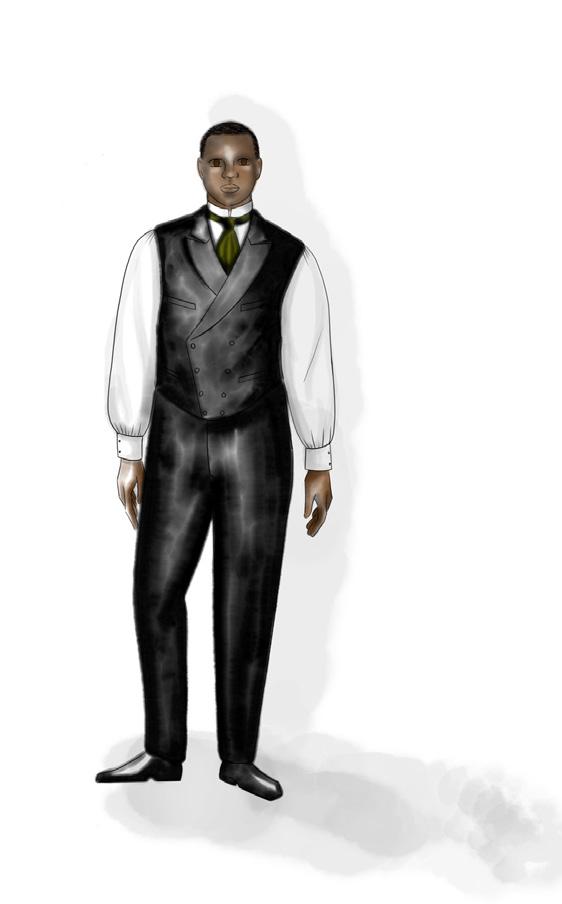
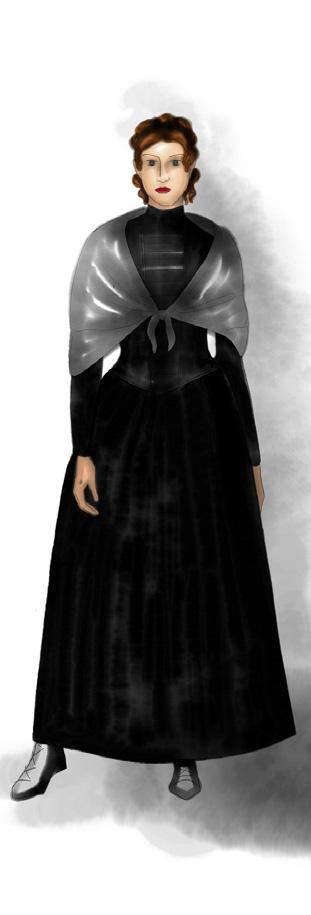
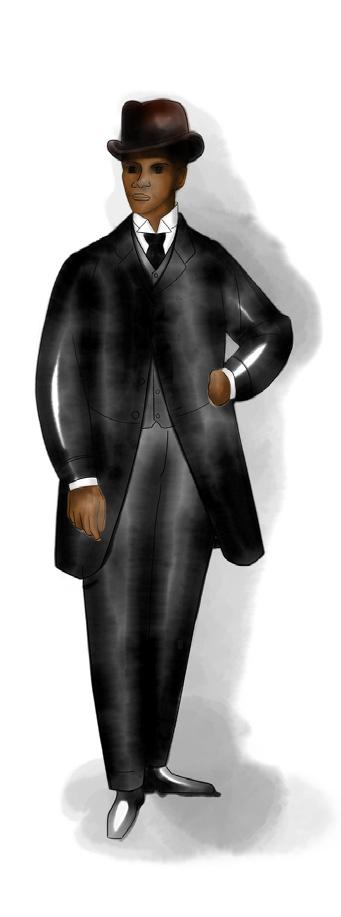

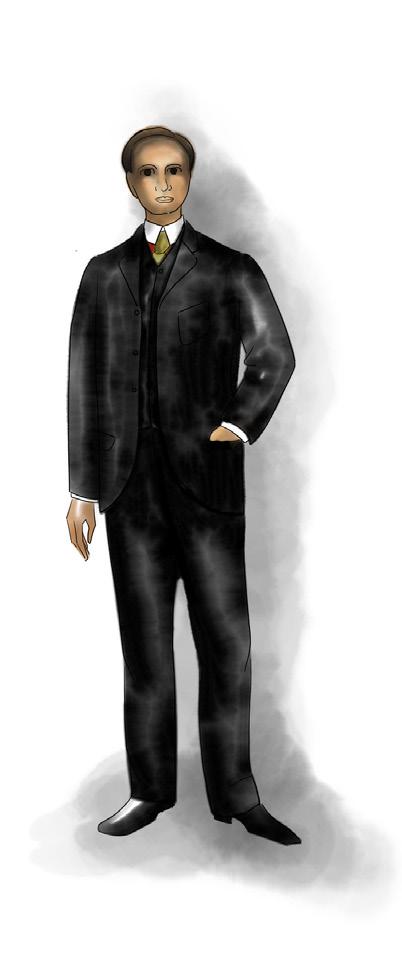
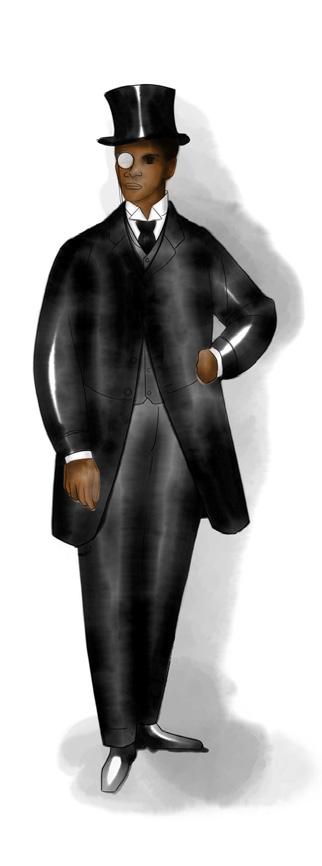
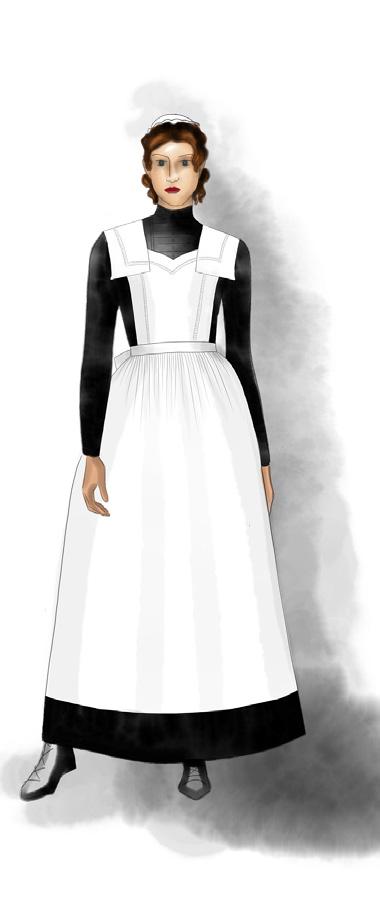
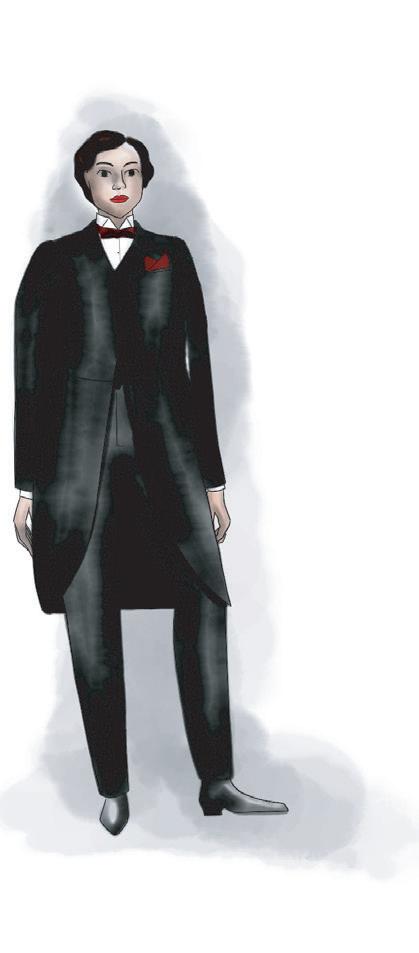
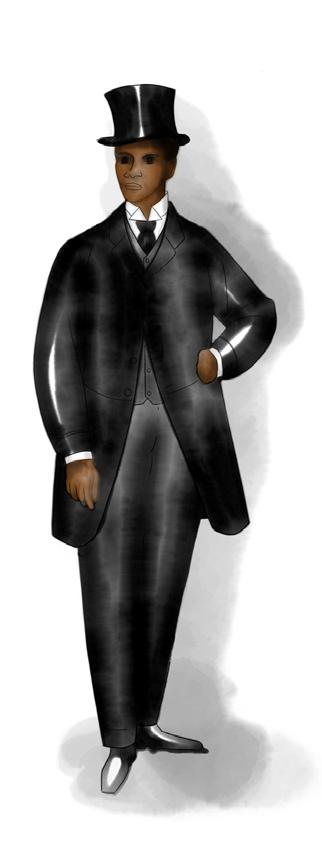
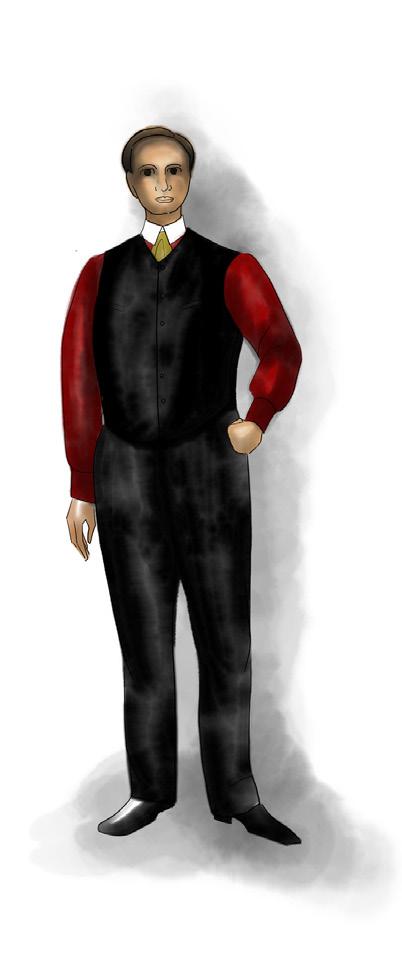
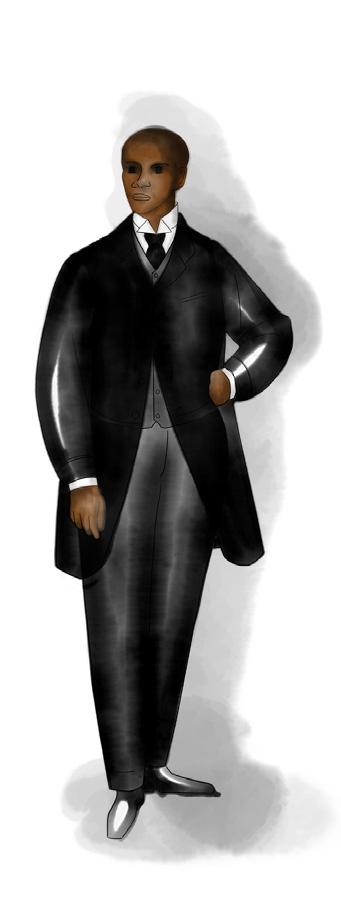
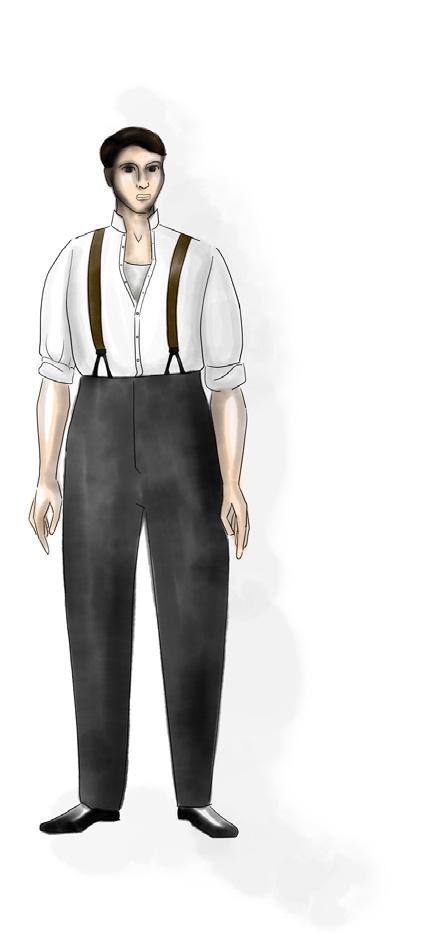
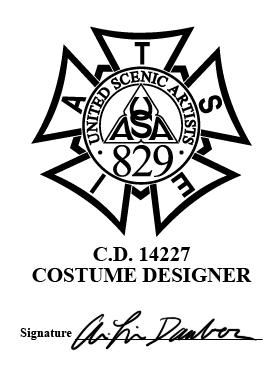

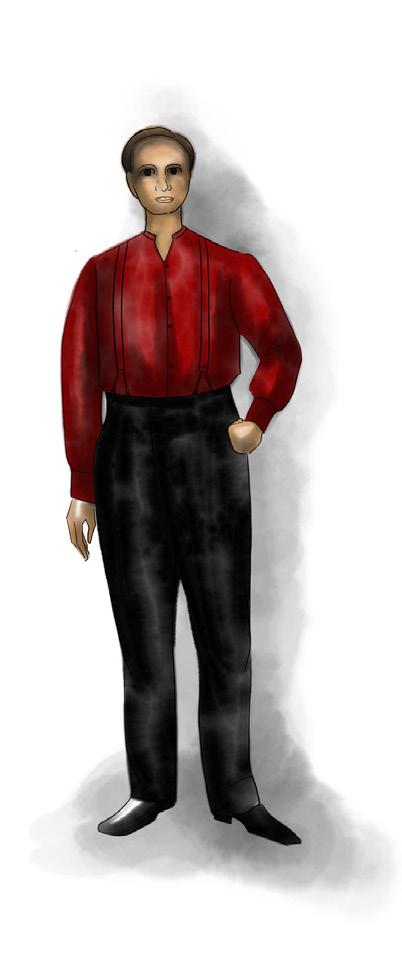
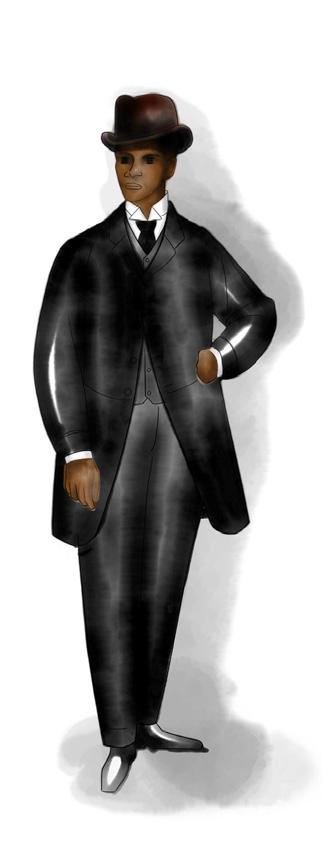

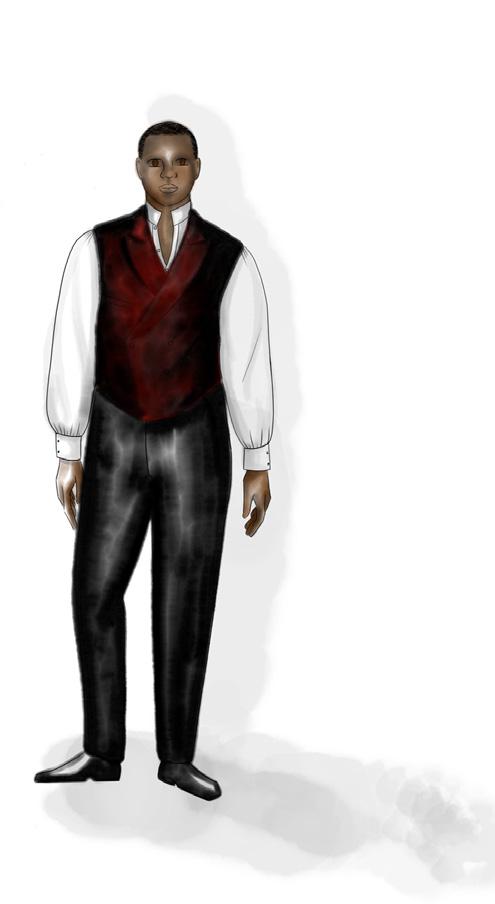
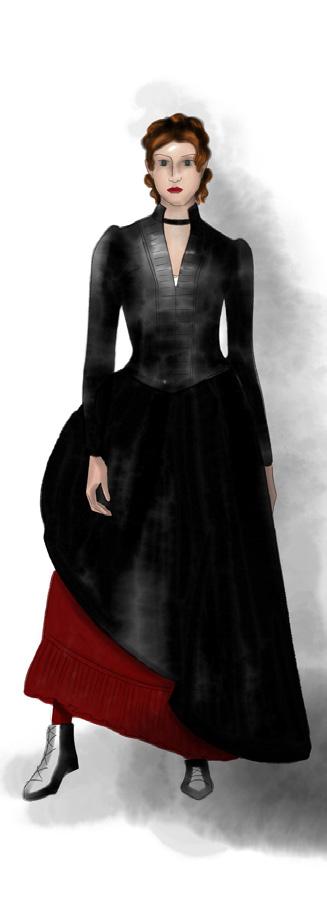


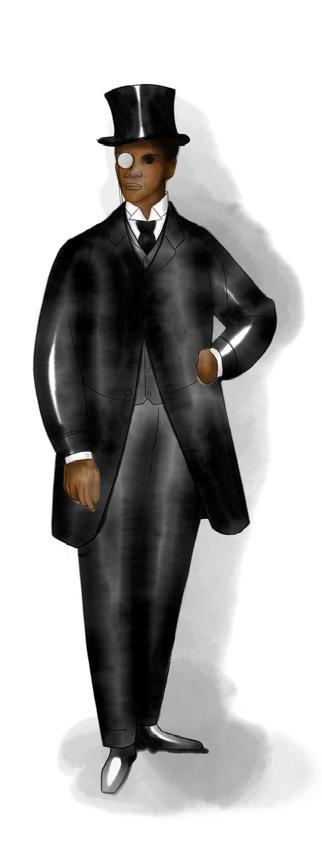
DR. HENRY JEKYLL
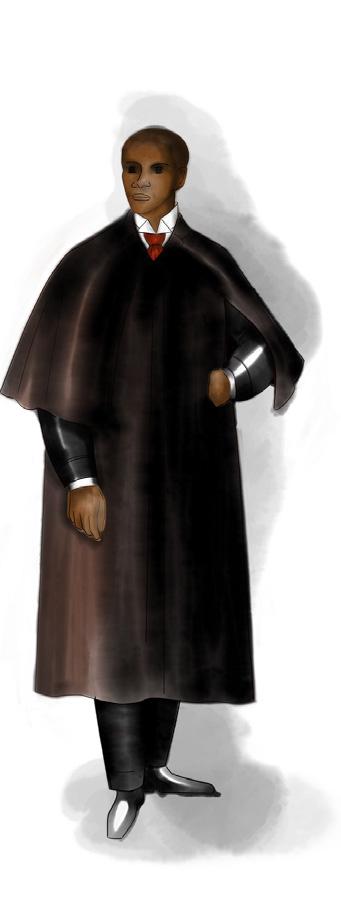
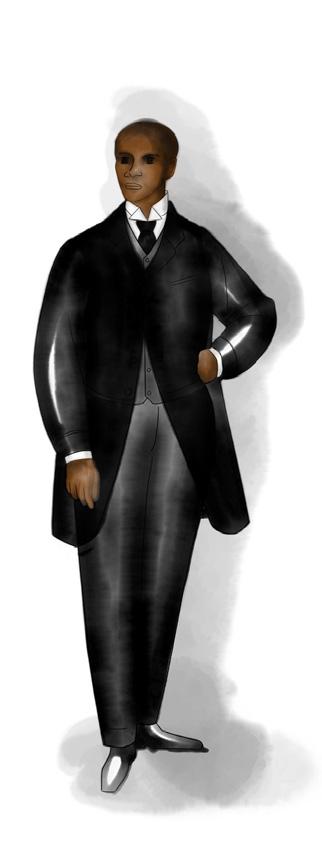
GABRIEL UTTERSON
MR. RICHARD ENFIELD


A medical doctor, known for his high moral character, who is working on an important experiment. He is life long friends with Gabriel Utterson and Dr. Lanyon.

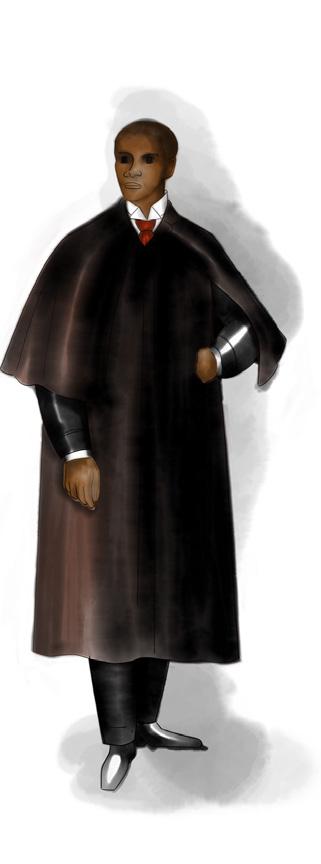
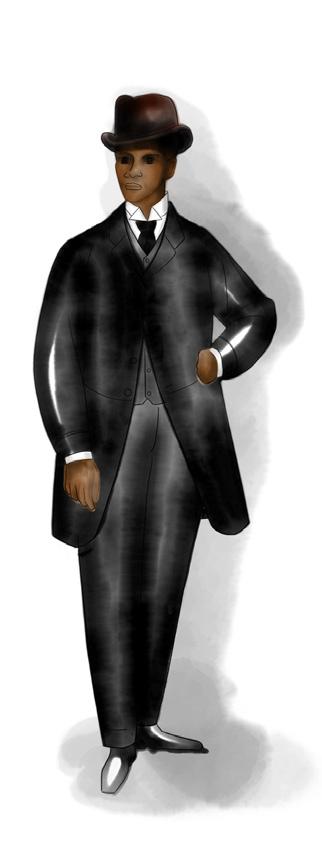
MR. EDWARD HYDE

Dr. Jekyll’s lawyer and life long friend who becomes intrigued by his friend’s connection to a disagreeable character of a man called Edward Hyde.
A distant cousin of Gabriel Utterson who first shows him the door to Mr. Hyde’s lodgings and recounts a story of seeing Hyde walk over a child in the street — crushing her as if he was not
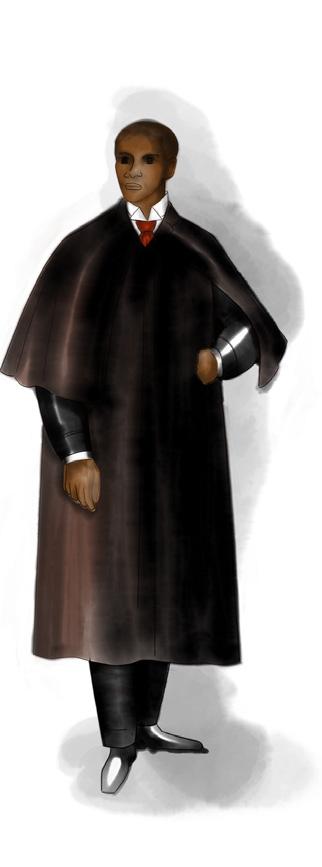
A man who seems to be governed only by evil impulses and yet is somehow connected to Henry Jekyll, so much so that he is Jekyll’s sole beneficiary in his will and has keys to his laboratory. The two men seem connected but are never seen together.
SIR DANVERS CAREW
A medical colleague of Dr. Jekyll who is known for conducting unseemly experiments on dead bodies. Dr. Jekyll has enormous loathing for Carew’s low moral character.
DR. LANYON
A medical colleague and old friend of Dr. Henry Jekyll.

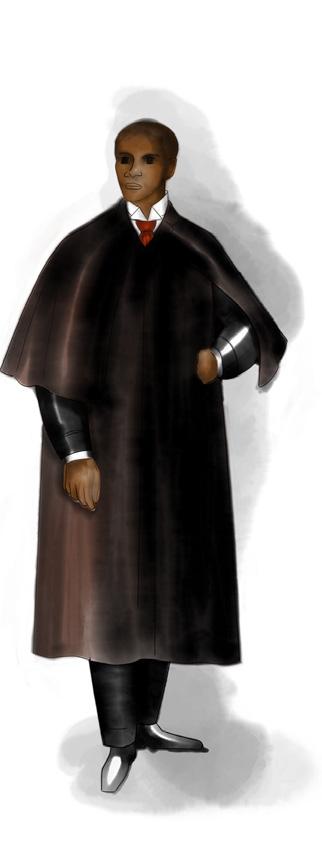
ELIZABETH JELKES
Older sister to a poor child who is assaulted by Mr. Hyde. Elizabeth is a chamber maid at a local hotel and develops a relationship with Hyde.
Dr. Jekyll’s long time trusted butler.
SANDERSON
A private detective hired by Jekyll to follow and spy on Hyde and his relationship with Elizabeth.
POLICE INSPECTOR
Leads the investigation when Dr. Carew is found murdered.
A police whistle echoes in the darkness as voices cry out desperately. A body drops to the ground…or is it two? Emerging from the confusion, Gabriel Utterson solemnly steps forward and begins to tell his side of the tragic story of Dr. Jekyll and Mr. Hyde.
Utterson recounts the first encounter of the townspeople with Mr. Hyde, one witnessed by his relative Richard Enfield.
On this fateful night in a dark back alleyway, Hyde runs into a child. In his frustration, he stands over the fallen girl, cane raised and ready to strike. Enfield intercedes, and after listening to reason, Hyde apologizes and reveals a connection to Dr. Henry Jekyll.
Weeks later, Enfield is still bothered by the encounter with Hyde. Tagging along with Utterson, he visits with Jekyll. When Hyde comes up in conversation, Jekyll becomes defensive. While Jekyll seems to be able to account for Hyde (he explains that Hyde is a former friend that he was indebted to) and resolve the matter for Enfield, now Utterson’s suspicion is piqued.
The next day, a powerful and crooked doctor in town (Sir Danvers Carew) is buying up the bodies of murder victims for his own twisted medical experiments. Jekyll attempts to foil Carew’s evil experiments by interrupting an open lecture/dissection, though he only feeds Carew’s anger and suspicion. Naturally, when a cadaver disappears from Carew’s lab that night, all fingers point to Jekyll as the primary suspect. While the town is on Jekyll’s side, he must contend with Carew’s power over the Board of Governors. Jekyll means no ill will and would never commit any such crime, even against Carew. In fact, Jekyll’s ambition for his experimentation is to eliminate any and all wrong doings of humanity by eliminating the evil in man. He believes he may be on the verge of discovering how to replace sin with serenity.
Over the course of the coming weeks, Hyde mysteriously appears more and more throughout the nights. Returning home late one evening, he finds Elizabeth, the sister of the young girl he ran into
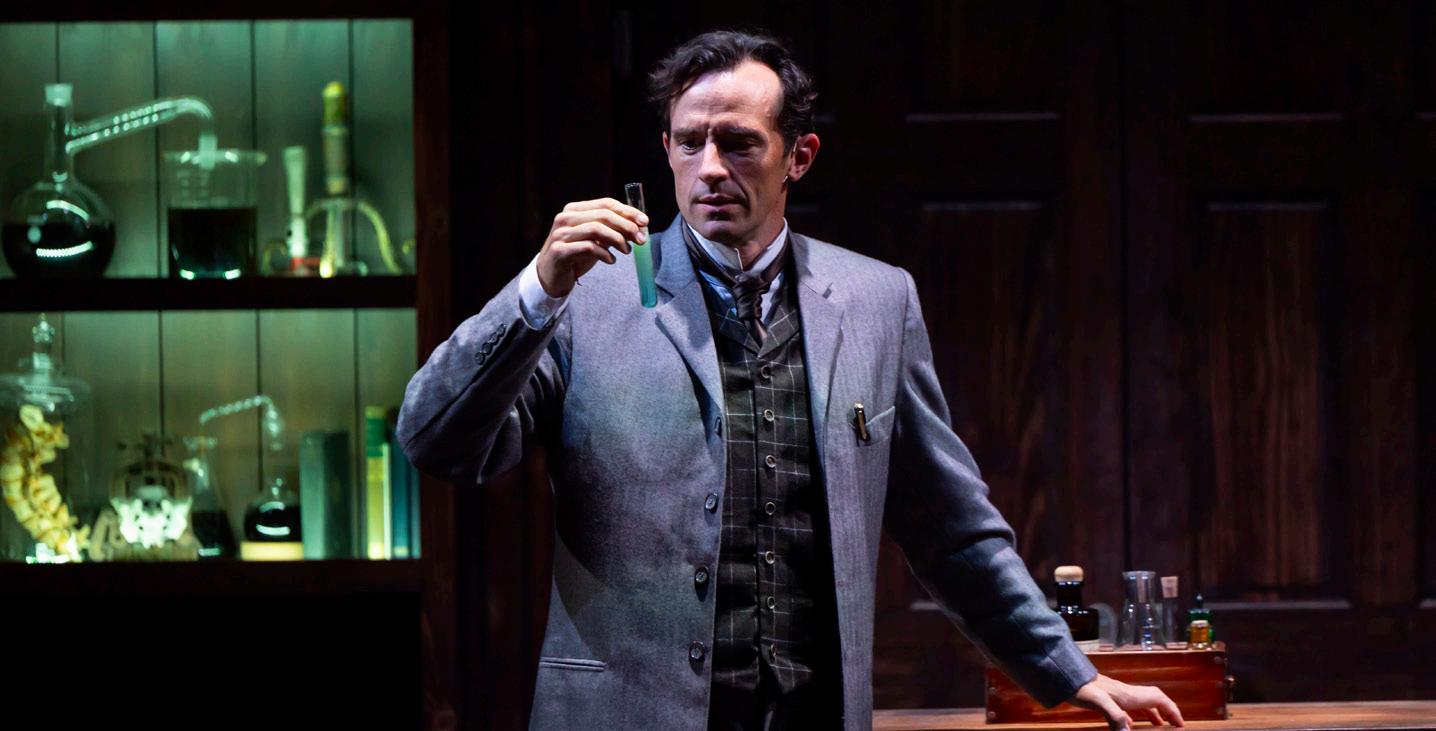
Solicitor: (British) a legal representative who advises in lower courts and prepares cases for Barristers to try in higher courts
Portend: to warn or indicate that something is likely to happen
Reproach: to express disapproval or disappointment
Steamer: ship or boat powered by steam
Overdraft: a deficit in a bank account caused by withdrawing more money than an account holds.
Rhetorical: a question asked in order to produce an effect or make a statement rather than require an actual response
Cudgel: to beat with a short, thick stick
Viscera: the internal organs in the main cavities of the body, especially those in the abdomen
Moot: having no particular significance, typically because the subject is too uncertain to allow a decision
Distended: swollen by stretching from the inside
Rapaciousness: aggressively greedy or predatory
Engorged: swollen with blood, water or other fluid
Lurid: very vivid in color, especially so as to create an unpleasantly harsh or unnatural effect
Charlatan: a fraud
Tinctures: medicine made by dissolving a drug in alcohol
Diviner: one who possesses magical or supernatural insight
Domicile: a person’s residence or home
Sojourns: temporary stays or visits
Traversed: traveled across or through
Bereft: deprived of or lacking something
Hovel: a small, unpleasant or simply constructed building Nathan Darrow.
early in the play. In several rendezvous that follow, she and Hyde foster a loving relationship.
Meanwhile, very odd things seem to be happening to Jekyll. As he unravels, he goes to Dr. Lanyon for advice. Jekyll reveals to Lanyon that Hyde is a unique and problematic patient, one he is unable to cure. One too many strange encounters with Elizabeth reveals that Hyde is inexplicably linked to Jekyll—they are alter egos attempting to fight over a single body and mind.
In an attempt to get Hyde under control, Jekyll employs a detective named Sanderson to record Hyde’s nightly pursuits. Sanderson’s observations reveal Hyde as a very troubled man, lent to violence and mayhem on his nightly outings. All the while, Utterson has been observing Hyde as well, and strongly advises Jekyll to rid himself of his unruly patient. A meeting with Elizabeth reaffirms Utterson’s advice, and Jekyll moves forward with ridding himself of Hyde.
Though well intentioned, Jekyll cannot stop Hyde. Hyde takes over, confronting Carew and killing him while framing Jekyll for the murder. As the police investigation closes in, Jekyll’s and Hyde’s struggle becomes more intense, capping off in an exchange over an unconscious Elizabeth. She knows too much, Jekyll reasons, she must be killed. Hyde however, cannot bring himself to murder his love.
A police whistle echoes in in the darkness as voices cry out desperately. A body drops to the ground…or is it two? Emerging from the darkness and confusion, the Inspector reveals…
NO SPOILER!
After seeing the play, talk to a friend or write down your own explanation of what happens at the end!
Accountability - Throughout the play, characters reference a story of a man who killed his family. In the story, the man asks, “What have I done?” Characters in the play debate whether the man is taken aback by his own horrific deeds or if he is attempting to shed the blame. In your life, have you ever broken a rule or gotten in trouble? How did you respond? Did you blame someone or something else? Or did you take responsibility for your actions?
Good versus Evil - We are all taught about right and wrong, and how to tell the difference between the two. In everyone’s life, however, we encouter both good and evil, and must make a choice in which route to take. Despite his best intentions to overcome the evil Mr. Hyde, Dr. Jekyll eventually succumbs to a power that seems greater than his own. Have you ever been tempted to break the rules? When you were tempted, did you succumb? Or did you do the right thing?
Scientific Experimentation - In the play, Carew uses cadavers for his own twisted medical experimentation. While not all experimentation is as cruel and unusual, animals, cadavers and even living human beings are a part of scientific experimentation. What do you think about such experimentation? What are the moral questions involved with experimentation? Are there potential benefits to such research?
Duality of Humanity - The play pits good (Dr. Jekyll) versus evil (Mr. Hyde), and allows them to fight to the death, literally. While the story spends a lot of time dividing people into two halves, it also alludes to the possibility that there’s more to us than just that. What do you think—are there two sides to every person, or is there more? How many sides do you think you have?
Reprinted with permission from The Repertory Theatre of St. Louis.
Dr. Jekyll and Mr. Hyde is set in a very dark and scary London in 1883, at the end of the Victorian Era in England. While madness and immorality may run rampant in the world of the play, is that what the Victorian Era was really all about?
The Victorian era is named after the ruler during the period, Queen Victoria. The era is commonly acknowledged to run from about June 1837 to January 1901 (corresponding to when Queen Victoria came to power and then subsequently died). Her reign, 63 years and seven months, is the second longest of any British monarch to date, after Queen Elizabeth II.
Groomed for excellence, Victoria was well versed in a wide array of school subjects including German, English, Italian, Greek, French, arithmetic, music and history (her favorite subject). Eighteen years old for less than a month, Victoria was crowned queen at the death of her uncle and king, William IV.
Victoria’s monarchy was marked by a strong emphasis on morality and family values. It was a time of peace and great prosperity for England, including advances in industry, education, government and more.
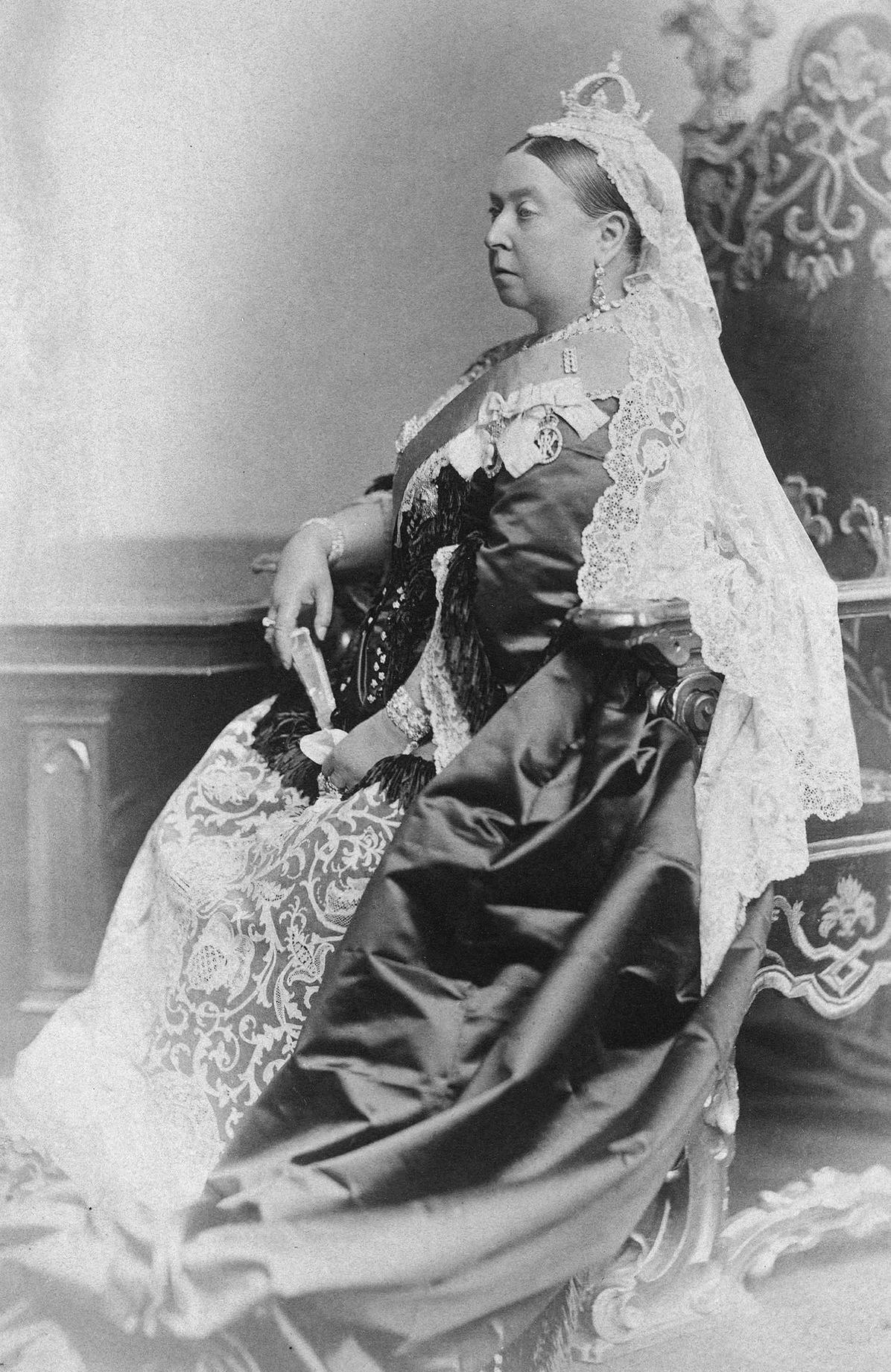
While the industrial Revolution kicked into gear prior to the Victorian Era, its effects began to appear prominently at this time. As factories began to spring up everywhere, the landscape of life changed radically as technology served to shift the way individuals worked, played and interacted. Though many technological advances came from the Industrial Revolution, perhaps most prominent among the troves included textiles, steam power and iron founding. Textiles led to more efficient production of cotton, yarn, flax and linen through the usage of spinning mills. Steam powered engines benefited various industries, from mining to agriculture. Meanwhile, iron founding allowed for a more efficient production of iron by use of coke rather than charcoal throughout the process of production. While we may take these innovations for granted today, these key advances allowed for industry to streamline and not be as dependent on certain variables in the environment (i.e.—before steam power, water power relied on being near a consistent water source).

Amid the new technology, advances in the process of producing goods allowed for greater efficiency. The notion of an assembly line as we know it today comes right out of the Industrial Revolution. For the first time workers could be trained in a single skill, performing only one step in the manufacturing process before passing the product along to another worker to perform another specific job, and so on.
The long held social structure of nobility and gentry way up on top, peasants far below, and the middle class floating somewhere in between, began to shift radically. Ordinary people began to overturn the nobility and gentry, as new opportunities in factories and mills leveled the economic playing field. There was a rise in the middle class by virtue of an innovative efficiency that made the production of goods more profitable, thereby redistributing the wealth more evenly among the social strata. Cities became more prominent during the Industrial Revolution, as hordes of workers flocked to factories in pursuit of the chance to move up in the world. Trade unions also formed in this era, and continue even today to protect the interests of workers.
With the newfound efficiency of the Industrial Revolution came newfound leisure time, which did not go to waste in the Victorian Era. Ever popular forms of entertainment like the theatre and the arts boomed, as music, drama and the opera were all highly attended. Gambling card houses (now known as casinos) also flourished, though evangelical and reform movements were a constant threat to such establishments. Brass bands became popular throughout the countryside. Citizens of Victorian England even became quite fascinated with the occult and supernatural.
During the Victorian Era, there was a rise in education among all classes, and a flourishing of intellectual advancements. Among the more popular (and controversial) was Charles Darwin’s work On the Origin of Species, which theorized common descent, or that all species arose from a common ancestor. The book serves as the foundation for the modern theory of evolution.
With the Victorian Era the popularity of books and novels reached new heights, and with a vast number of talented writers emerging from the era it’s easy to see why. Such literary giants as Charles Dickens (A Christmas Carol, A Tale of Two Cities and Great Expectations), Oscar Wilde (The Importance of Being Earnest and The Picture of Dorian Gray), and the Brontë sisters (Jane Eyre, Wuthering Heights and Agnes Grey) came from this era, taking storytelling and imagination to new heights.
Reprinted with permission from The Repertory Theatre of St. Louis.
HARTFORD STAGE EDUCATION PROGRAMS ARE SUPPORTED BY
The BFA Endowed Fund at the Hartford Foundation for Public Giving
Connecticut State Department of Education
Connecticut State Judicial Branch
Enterprise Foundation
Ensworth Charitable Foundation
Mr. & Mrs. William Foulds Family Foundation
Greater Hartford Arts Council
Hartford Foundation for Public Giving
The George A. & Grace L. Long Foundation
The MorningStar Fund at the Hartford Foundation for Public Giving
SBM Foundation
Scripps Family Fund for Education and the Arts
The Michael E. Simmons Foundation
Talcott Resolution
Travelers Foundation
The University of Saint Joseph


SEASON SPONSORS STUDENT MATINEE SPONSOR
PRODUCERS Don & Marilyn Allan Cheryl Chase & Stuart Bear Family Foundation POST-SHOW DISCUSSION SPONSOR


For more information about education programs at Hartford Stage, please call 860-520-7244 or email education@hartfordstage.org.